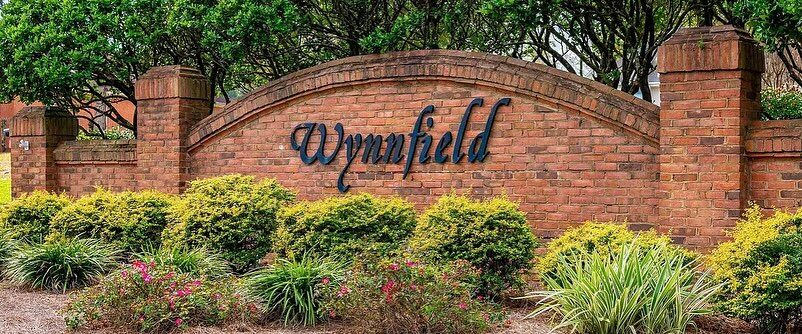What Is a Homeowners Association (HOA)?
A homeowners association (HOA) is an organization responsible for creating and enforcing rules within a specific community, such as a subdivision, planned neighborhood, or condominium complex. HOAs are governed by a board of directors and funded by monthly or annual fees collected from homeowners. These funds are used for maintaining common areas, amenities, and facilities.
When purchasing property within an HOA’s jurisdiction, buyers automatically become members of the association. While some HOAs grant considerable freedom to residents, others impose strict rules regarding property use and appearance.
Key Takeaways
- Definition: A homeowners association is an organization that governs a subdivision, planned community, or condominium by creating and enforcing rules.
- Membership: Membership is typically mandatory for anyone purchasing property in the community.
- Fees: HOAs collect fees for maintenance and other services.
- Governance: Run by a board of directors, HOAs are responsible for overseeing finances and enforcing regulations.
- Enforcement: HOAs can impose fines or take legal action against homeowners who violate community rules.
How HOAs Work
Homeowners associations are established within residential communities to oversee and enforce rules that ensure uniformity and maintain property values. They are governed by the residents themselves, with a board of directors elected to manage the association’s operations.
HOA rules are outlined in a document called the Declaration of Covenants, Conditions, and Restrictions (CC&Rs). These rules can cover:
- Structural guidelines (e.g., fencing types, landscaping requirements)
- Aesthetic standards (e.g., house paint colors)
- Community behavior expectations
Penalties for rule violations may include fines, forced compliance, or even legal action.
HOA Fees
HOA fees vary depending on the property type, location, amenities, and operating expenses. They typically range from $200 to $400 per month, though luxury communities may charge significantly more.
HOA fees generally cover:
- Maintenance of common areas
- Landscaping
- Security services
- Amenities like swimming pools, tennis courts, and party spaces
In addition to regular dues, HOAs may charge special assessments to cover unexpected repairs or projects when reserve funds fall short. If homeowners fall behind on payments, the HOA can impose fines, restrict privileges, or place a lien on the property, complicating its sale.
Differences Between HOAs, Community Associations, and Property Owner Associations
While most HOAs are incorporated and subject to state laws, not all community organizations function the same way. For instance:
- HOAs: Govern homeowners and enforce property rules.
- Community Associations: A broader term encompassing HOAs, condominium associations, and co-op boards.
- Property Owners’ Associations: Focus on improving real estate values, often including non-homeowners with vested interests.
Advantages of an HOA
- Property Value Protection: HOAs enforce standards to maintain or enhance property values.
- Amenities and Services: Members often enjoy shared facilities like pools, gyms, and tennis courts, as well as services like landscaping and snow removal.
- Community Governance: Residents directly manage their community, fostering local decision-making.
- Uniform Aesthetics: Guidelines ensure a consistent appearance, contributing to overall curb appeal.
Disadvantages of an HOA
- Cost: HOA fees can be a significant financial burden, especially in luxury communities.
- Restrictive Rules: Homeowners may feel constrained by rules governing property use and appearance.
- Inexperienced Leadership: Board members are often volunteers who may lack expertise in real estate, finance, or community management.
- Potential Conflicts: Decision-making can lead to disputes among board members and homeowners.
Example of HOA Challenges: Solar Panel Restrictions
Conflicts between homeowners and their HOA boards often arise. One recurring issue involves solar panels. For example, in 2020, an electrical engineer in Blaine, Minnesota, sought to install rooftop solar panels. The HOA rejected the request, citing aesthetic concerns and a lack of established guidelines for solar installations.
The homeowner joined advocacy efforts for legislation to limit HOAs’ ability to ban solar panels. However, similar bills introduced in Minnesota and other states have faced challenges and failed to pass.
What HOAs Cover
HOAs oversee a variety of community needs, such as:
- Maintenance: Ensuring that buildings and shared areas are clean and in good repair.
- Renovations: Approving and managing larger projects.
- Enforcement: Drafting and upholding community bylaws.
HOA fees fund these operations and allow the board to enforce policies, impose fines, and manage finances.
Pros and Cons of Belonging to an HOA
Pros
- Consistent enforcement of community rules
- Protection of property values
- Access to services and amenities
- Community self-governance
Cons
- Mandatory fees and assessments
- Restrictive guidelines
- Potential inefficiency in management
- Volunteer boards may lack professional expertise
Legal Authority of HOAs
HOAs have varying legal powers based on their structure and state laws. Common powers include:
- Establishing and enforcing community policies
- Collecting dues and fees
- Imposing fines or penalties for noncompliance
- Taking legal action to resolve disputes or enforce rules
Bottom Line
Living in an HOA community offers benefits like well-maintained facilities, organized governance, and consistent property values. However, the trade-offs include mandatory fees and restrictions on personal property use. While HOAs can simplify aspects of homeownership, they may also introduce challenges for those who value autonomy over uniformity.
